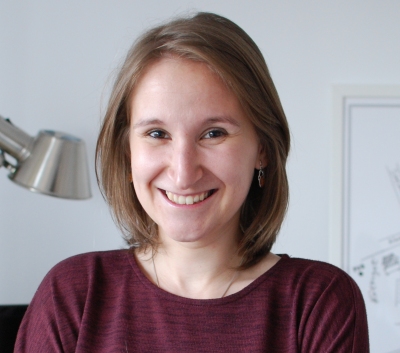
Alexandra Zaharia
PhD student
Directory details
E-mail
Institution : University of Fribourg & University of Geneva & Swiss Distance Learning University
Department : Institute of Special Education (UNIFR), Swiss Center for Affective Sciences (UNIGE)
Discipline : Psychology, Special Education
Research field : emotion regulation, emotional competences, board games, neurodevelopmental disorders, eye-tracking
Supervisor : Andrea Samson; David Sander
I obtained my Master's degree in Affective and Clinical Psychology at University of Geneva in 2014. My MA thesis, "Emotion recognition and perspective-taking was co-supervised by Prof. Tobias Brosch and Prof. Martin Debbané. During my Bachelor and Master studies, I was an inter in the Research Unit of Adolescence Clinical Psychology at University of Geneva (currently the Developmental and Clinical Psychology Research Unit), where I worked on various topics such as alexithymia, body modification and self-harm behavior, mentalization, delinquency, and agressive behavior in adolescence and young adults.
From 2014 to 2016, I worked as a research assistant at the Developmental Imaging and Psychopathology Lab (Research Unit of Office Médico-Pédagogique), Department of Psychiatry, Faculty of Medicine, Geneva, under the supervision of Prof. Stephan Eliez and Dr. Maude Schneider. My research project focused on an eye-tracking study exploring configural and featural face procecssing in 22q11.2 deletion syndrome.
In 2016, I started working in the Psychopathology and Emotion Regulation Group led by Prof. Andrea Samson, affiliated to Swiss Center for Affective Sciences.
In 2018, I obtained a research and teaching assistant position at Swiss Distance Learning University for two MA courses in Psychology: Psychology of Socio-Emotional Processes and Positive Psychology. I am also enrolled as a PhD student at Special Education Department of University of Fribourg. My PhD project is co-directed by Prof. Samson and Prof. David Sander.
Currently, my main research topic focuses on positive emotion regulation interventions. I therefore coordinate a psycho-educational program implemented in schools and with individuals with Autism Spectrum Disorder (ASD), which aims to improve socio-emotional competences. I am further interested to develop and upgrade the current training into an interactive tool adapted for adolescents.
In addition, I investigate the sensitivity to cuteness in children with ASD using eye-tracking technology.
